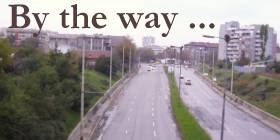
|
with Richard Graves
8. Roses of Picardy
|
Lyric writers tend to get a pretty raw deal on the whole. Composers of
ballads have a far better chance of being remembered than those who write
the words. Take Roses of Picardy for instance. It is still loved
and sung today and has indisputably and deservedly become a minor classic
in its way. First published in 1916, its soothingly sentimental imagery
soon made it one of the most popular of all the ballads inspired by the
First World War.
The composer, as most of us might recall, was Haydn Wood (1882-1958)
though probably fewer people could name the lyricist. It was in fact Fred
Weatherly whose name is to be seen on literally hundreds of music covers
dating from the 1880's onwards.
Weatherly (1848-1933) was a man of many parts. Professionally he was
first and foremost an eminent barrister. He was also an author of books
on logic as well as of a delightful autobiography Piano and Gown
(Putnam 1926). His great hobby however was music. He composed a few things
himself as well as putting The Londonderry Air into prominence by
both arranging the music and providing the words for its reincarnation as
Danny Boy. Apart from writing all those ballad lyrics, he was also
a minor poet in his own right and published a volume of his own poetry.
Roses of Picardy has always seemed to me to be the ideal fusion
of words and music in ballad style. The sentiments of the lyric are fresh
and touching, while the tune has immediate appeal and memorability - the
verse being particularly lovely. Oddly, though, the partnership of Wood
and Weatherly was in this instance totally fortuitous and quite unplanned.
Weatherly tells us that he wrote the words originally to fit music which
had already been composed by Herbert Brewer. Brewer, later to become Organist
of Gloucester Cathedral, was at that time writing a lot of ballads - I treasure
a copy of his setting of Rose Fyleman's words with the biologically curious
title The Fairies Have Never a Penny to Spend. For some reason the
first publishers did not like either the words or music of Picardy
and the song was summarily rejected. Weatherly later sent his lyrics to
Haydn Wood who eventually produced the version we all know so well. Fortunately,
another publisher was quick to accept it. It is difficult to believe that
words and music were not conceived as soul mates but it is good that they
eventually came together so happily. The original publishers may have made
the right decision in the first instance, but I can't help feeling it would
be fun to come across the discarded Brewer setting just to see what it was
like ...
Copyright © Richard Graves, June
10th 1999
Molto Dolente >>
|